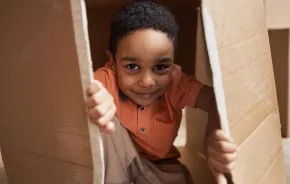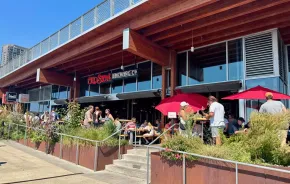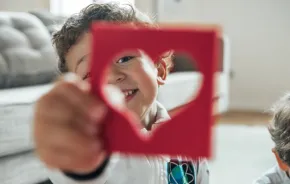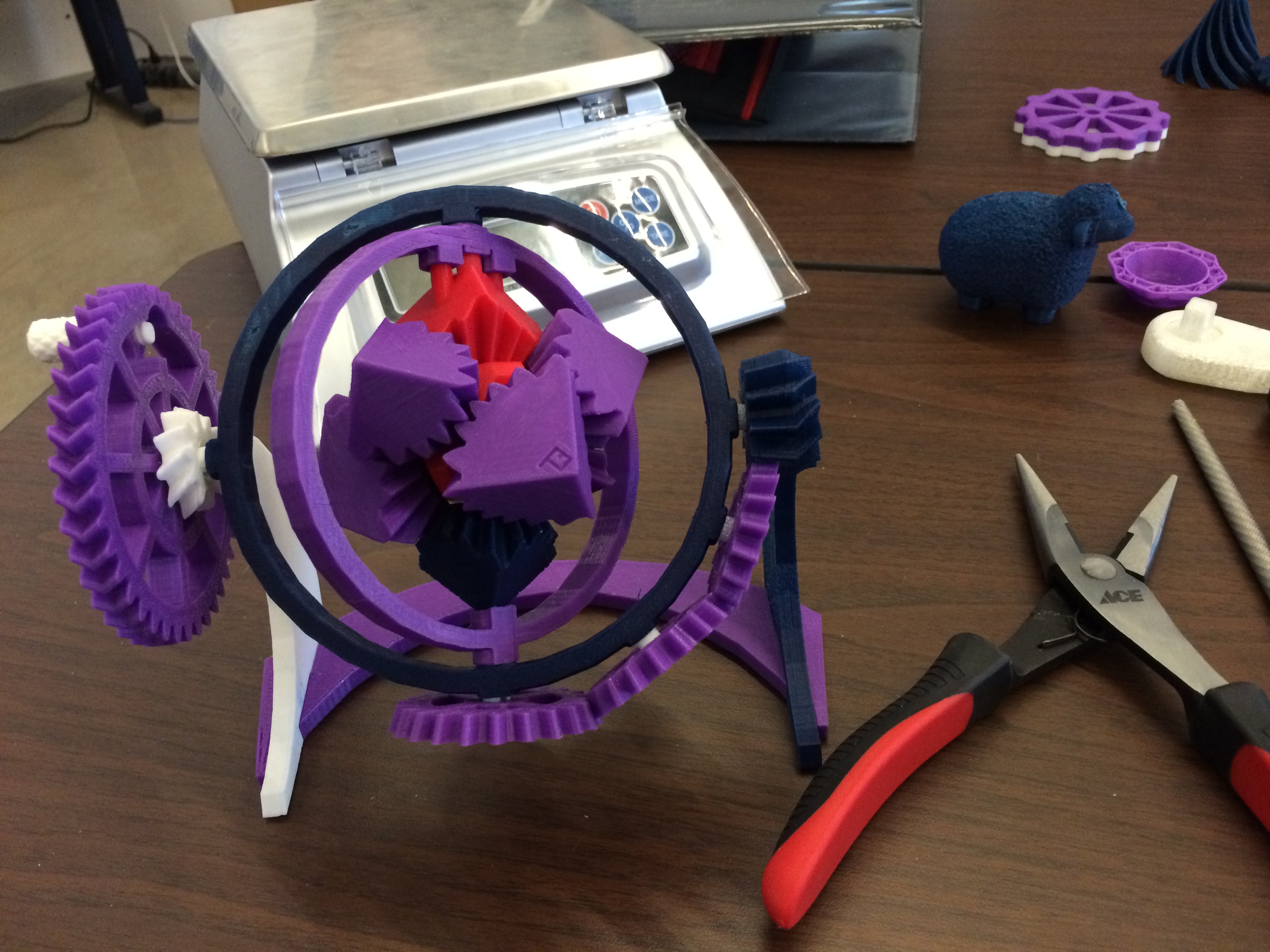
The biggest buzz in technology is around 3-D printing, and it turns out that there is a local spot where older kids (and adults) can learn to 3-D print in an afternoon for only $5. The Future of Flight Aviation Center's Maker Mondays program introduces participants to the technology and helps them develop a printable project in one afternoon.
“We use exclusively free stuff, tools you can download and use at home,” says Kyle Bates-Green, Future of Flight Foundation Educator. Bates-Green begins each workshop (which runs from 3–8 p.m. every Monday) with a 45-minute tutorial on the basics of SketchUp Make software. After that, he is available to answer questions as makers work on their own designs. About a third of the students get caught up in complicated designs and come back week after week to finish them, but Bates-Green says most students complete a simple design in a single session.
If a student's design outgrows her ability or the time available, but she still wants to take home a finished product, he directs them to Thingiverse, a free online database of completed, downloadable designs.

So should you plan to take your tech-savvy kids your next available Monday? The organizers note that no previous experience with the software is necessary, but concentration and eye-hand coordination are factors in enjoying the process.
Successful students can start as young as 7, and a winning idea is for intergenerational teams to work on projects together (like a grandparent and grandchild making replacement parts for a model airplane). In general, though, the program is probably best for younger teens, especially those with an interest in math and science. Students should also be comfortable using all the buttons on the mouse.
“SketchUp Make is also a design tool for artists,” Bates-Green adds.
Details: Maker Mondays workshops are held every Monday, from 3 p.m. to 8 p.m. and are drop-in: Students are welcome to join in at any time. Those who are already familiar with the software can dive right in; newbies may have to wait until Bates-Green is free to give them the orientation. Makers under 15 must be accompanied by an adult. Admission is $5 per day (free for Foundation members) plus $0.90 per gram for materials – significantly cheaper than most computer courses.
6 more options around Puget Sound for mini makers
Museum of History and Industry: Maker Day at MOHAI are held the last Saturday of each month (including this Saturday, July 25). Drop in any time between 11 a.m.–2 p.m.; activities are designed for all ages and skill levels and no reservation is necessary. Maker Day activities are free with museum admission. Saturday, July 25 is Sewing and Upcycling. Pair it with the Speakeasy Saturday program Drink Addition (all ages and nonalcoholic) in the afternoon. August 29 is 3D Printed Game Pieces; September 26 is Toy Boat Building.
App Academy: The all-volunteer Seattle App Academy, located in West Seattle, aims to inspire kids to be technology creators instead of technology consumers. With courses in programming, app and game development, web design, robotics, entrepreneurship and electronics, it teaches students from fourth grade through high school. Summer programs are already done, but during the school year, hour-long weekly classes run for 8-week sessions in grade-level groups. All classes are $200. App Academy is currently recruiting students entering grades 4-8 for a new robotics team.
Coyote Central: Teens ages 10-15 can design and build a bicycle, learn to weld, develop their own video game or animated film, learn circuitry and more in Coyote Central's studio program based in Seattle's Capitol Hill. Summer camps continue through August. Similar course offerings during the school year run on seven consecutive weekends. Courses are taught by professionals in the subject. Most programs cost between $200 and $300.
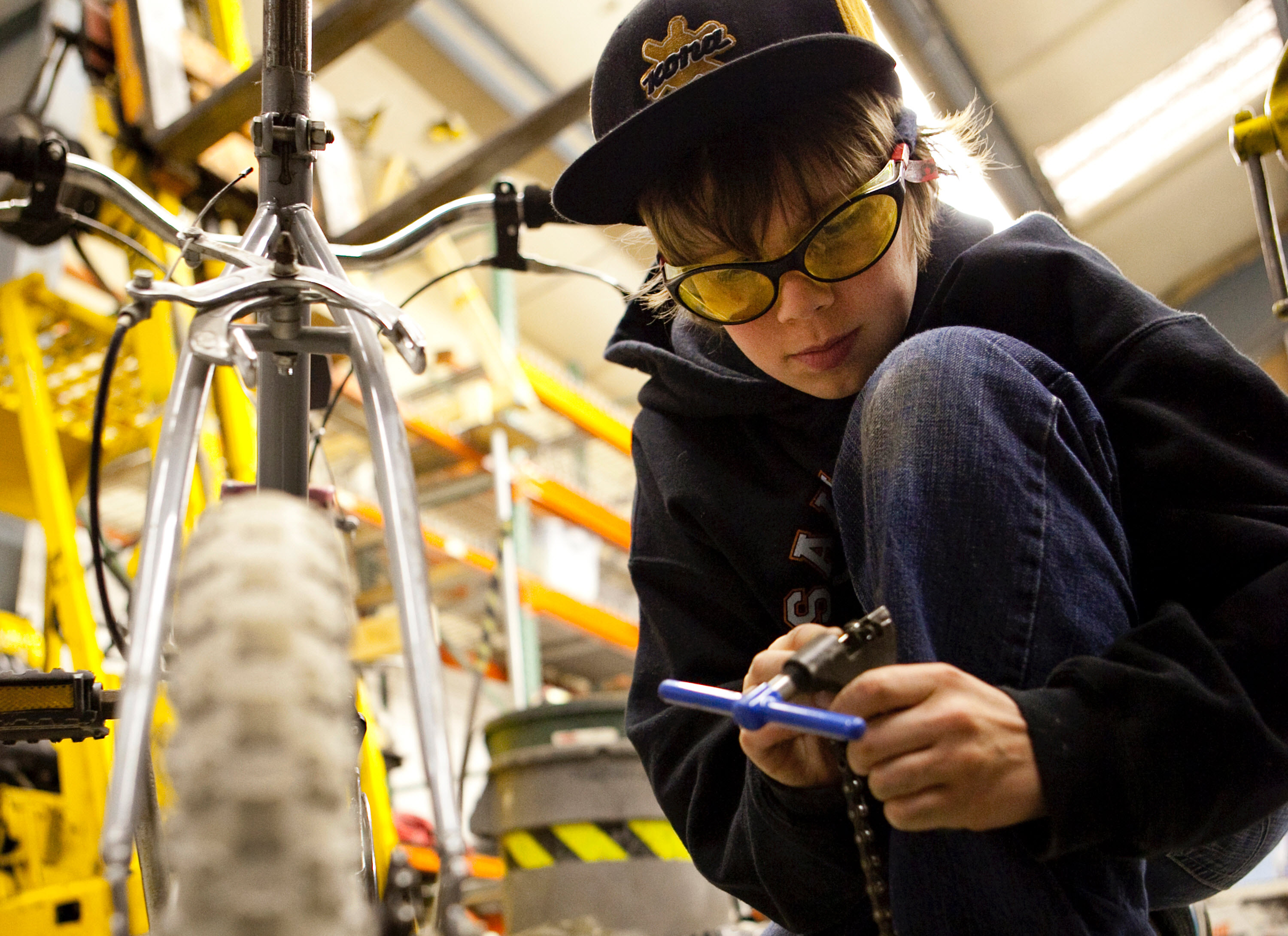
Metrix Create:Space: Metrix is a retail hackerspace on Seattle's Capitol Hill. A cross between a workspace and a hobby shop, Metrix provides easy access to tools and rapid prototyping services for the general public. Unlike other spots on this list, the emphasis at Metrix is on getting your idea made, not on learning how to use the tools. However, they do offer some workshops. There is no preset minimum age; if a class on the schedule interests your child, call to talk about whether there are prerequisite skills or safety considerations. In many cases, if your child can make the call themselves they can probably manage the workshop. Most workshops are between $50 and $100. Maker rates vary according to the tools, materials and time required for completion.
STEM Paths Innovation Network (SPIN) and SoDo MakerSpace. SPIN provides workshops in electronics, robotics, programming and leadership skills in low-income communities, targeting at-risk and homeless multicultural youth. Classes are free to qualifying students, offered at the East African Community Center, Filipino Community of Seattle and Bellevue School District. Weekly summer camps run through August. Programming will expand to SoDo MakerSpace during the school year; classes and prices will be announced in August
Seattle Mini Maker Faire: This fun, fascinating maker fair is at EMP Museum this year from Sept. 19–20. It's a family-friendly showcase celebrating the Maker Movement with exhibitors ranging from tech enthusiasts to homesteaders. You just might find a craft or technology that your whole family will want to learn.
Other activities at Future of Flight
- Try the Future of Flight summer program, called cAMP, for a whole week of design and engineering. There are two sessions left: Arts cAMP begins July 27 and Math cAMP begins August 3.
- If your kids aren't quite ready for Maker Mondays, Weekend Family Workshops are 90-minute aviation-themed workshops at 10 a.m. and 1:30 p.m. on Saturday and Sunday. Each workshop includes a story and a project, usually different types of gliders and paper airplanes, using materials like paper and straws. Drop-ins are welcome. Workshops are free to ticket holders and members.








